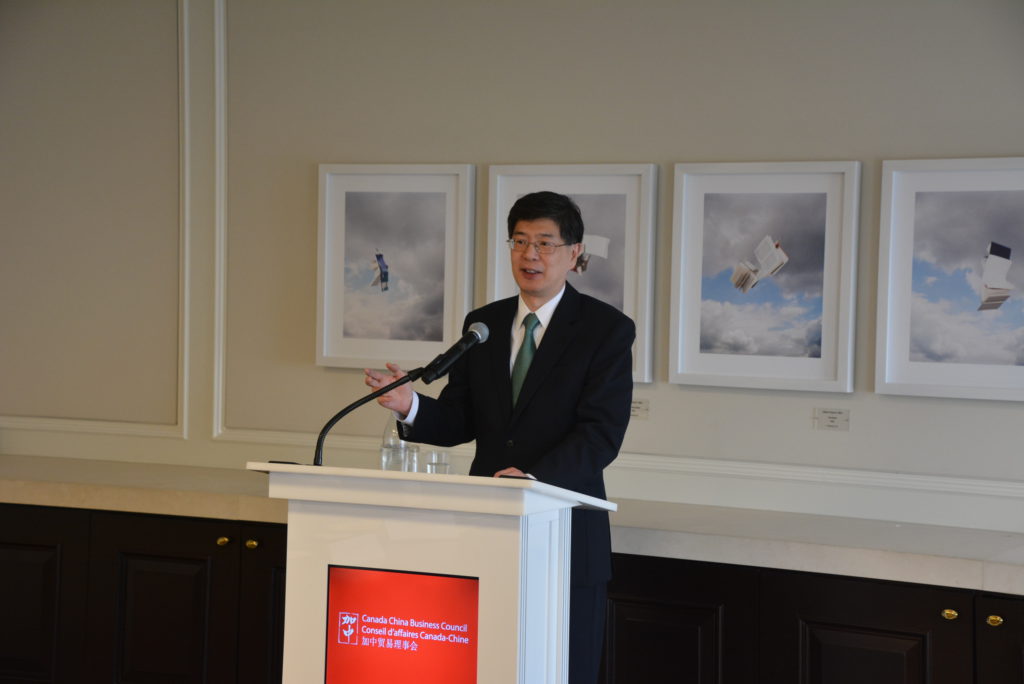China to invest in Canadian mining despite crackdown, envoy says

China’s ambassador says the country will continue to do business in Canada’s domestic critical minerals sector despite Prime Minister Justin Trudeau’s “unfortunate” crackdown on foreign investment.
Ambassador Cong Peiwu said the Canadian government is “wrong” to prevent Chinese investors from buying majority stakes in domestic mining companies, like it did in 2022 when it forced three Chinese state-owned firms to divest from a trio of lithium companies.
“Politicizing normal commercial cooperation and using national security as a pretext for political interference is wrong. China has expressed firm opposition to this,” said Cong in an interview with Bloomberg News on Wednesday.
“We’ll continue to do business on the basis of mutual respect and mutual benefit.”
The comments follow remarks by Canada’s Natural Resources Minister Jonathan Wilkinson last week warning miners that Chinese stakes will face strict national security reviews.
Chinese investment has continued to flow through Canada’s mining sector more than a year after Trudeau moved to tighten its foreign ownership rules.
This year alone, Zijin Mining Group Co. initiated plans to buy a 15% stake in Canadian copper company Solaris Resources Inc., Ganfeng Lithium Group Co Ltd. moved to take a 15% stake in Vancouver-based Lithium Americas Argentina Corp. and Yintai Gold agreed to buy gold explorer Osino Resources Corp. for C$368 million ($271 million).
Canadian government officials, speaking on condition they weren’t named, have told Bloomberg they are tracking the issue closely and are considering whether further measures are needed beyond the current national security review regime.
While Wilkinson warned that recent transactions will be subject to rigorous reviews, Cong urged Canada’s government to “respect market laws, rather than shouting slogans against China and waging these wrong-placed accusations against China by over-stretching the concept of national security.”
China has found an ally in Canada’s cash-strapped junior mining firms, some of which have called on Ottawa to relax tougher rules on Chinese investment while the sector struggles to raise capital while commodity prices are low.
China’s investments provide capital to those firms at a time when metals have become an essential ingredient to the global transition away from fossil fuels. Minerals including lithium, copper, nickel and cobalt are key components of electric vehicles, solar panels and wind turbines, though countries like Canada and the US have pushed to build a domestic supply chain to reduce China’s dominance in the global mining industry.
“Critical mining is about those materials to be used in sectors like new-energy vehicles,” said Cong. “That’s good for the whole world. We’re talking about coping with climate change.”
(By Jacob Lorinc and Brian Platt)
More News
Contract worker dies at Rio Tinto mine in Guinea
Last August, a contract worker died in an incident at the same mine.
February 15, 2026 | 09:20 am
{{ commodity.name }}
{{ post.title }}
{{ post.date }}




Comments
John Q Public
Ambassador Cong Peiwu, the Canadian government is correct in preventing Chinese SOE’s and other government sponsored entities to purchase resources in Canada. These entities (your SOE’s and other state entities) loosely follow the rule of law, however perate with a touch of arrogance in the jurisdictions outside their home countries..
For example, at PDAC this year (2024) several entities were not allowed visas to attend this conference .Chinese companies were able to bi-pass these restrictions by sending individuals as sole persons. Another bone of contention is that several Canadian entities have had extremely difficult issues opening businesses in China.
Yes, Chinese entities has purchased Canadian companies with operations/projects outside of Canada.
However , the business practice of some Chines entities leaves a lot to be desired. I think the government you represent Mr. Ambassador should relocate to somewhere else but here. Thank you for letting me rebut / refute
your argument.
P.S. I didn’t mention technology theft and transfers.
Sign John Q. Publi